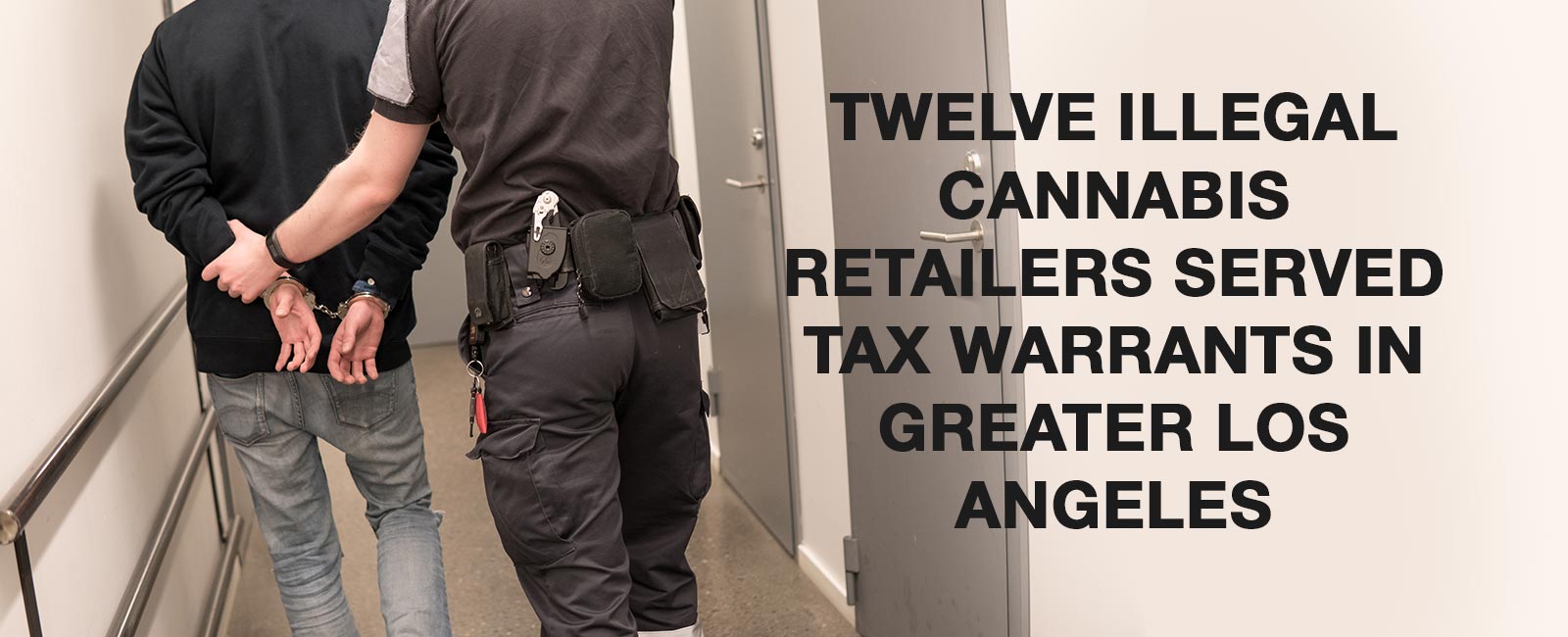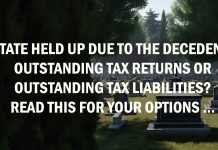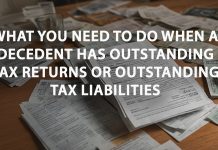Twelve Illegal Cannabis Retailers Served Tax Warrants in Greater Los Angeles
The California Department of Tax and Fee Administration (CDTFA) oversees the reporting and collection of taxes for the California cannabis industry. On July 8, 2020 the CDTFA announced that over the past several weeks twelve illegal cannabis retailers in Los Angeles and San Bernardino counties were served tax warrants with the assistance of the California Highway Patrol (CHP).
The CDTFA seized nearly a million dollars in illegal cannabis products that will be destroyed and approximately one hundred thousand dollars in cash that will be applied to tax liabilities. The investigation was a joint effort between CDTFA investigators and the CHP. Section 34016 of the California Revenue and Taxation Code (R&T Code) allows such government and policing officials to conduct inspections at any place at which cannabis or cannabis products are sold to purchasers, cultivated, or stored, or at any site where evidence of activities involving evasion of tax may be discovered.
Penalties For Refusing Inspection.
R&T Code Section 34016 provides that any person who fails or refuses to allow an inspection shall be guilty of a misdemeanor. Each offense shall be punished by a fine not to exceed $5,000, or imprisonment not exceeding one year in a county jail, or both the fine and imprisonment.
Additionally, upon discovery by the board or a law enforcement agency that a licensee or any other person possesses, stores, owns, or has made a retail sale of cannabis or cannabis products, without evidence of tax payment or not contained in secure packaging, the board or the law enforcement agency shall be authorized to seize the cannabis or cannabis products.
Lastly, any person who renders a false or fraudulent report is guilty of a misdemeanor and subject to a fine not to exceed $1,000 for each offense, or imprisonment not exceeding one year in a county jail, or both the fine and imprisonment.
Penalties For Selling Cannabis Without A License.
All commercial cannabis activity in California must be conducted on a premises with a valid license issued by the appropriate state cannabis licensing authority. Manufacturing, distributing or selling cannabis goods without a state license or at a location that is not licensed is a violation of state law.
For most defendants, unlicensed sale or transport for sale of cannabis is a misdemeanor punishable by up to six months in county jail and/or a fine of up to $1,000. For defendants under 18, it is an infraction. Also, giving away or transporting for sale up to 28.5 grams of cannabis without a license is an infraction.
But the sale/transport for sale of cannabis without a license to do so is a felony for the following defendants:
- Defendants who have a prior conviction for one of a list of particularly serious violent felonies, including murder, sexually violent offenses, sex crimes against a child under 14, or gross vehicular manslaughter while intoxicated, or a sex crime that requires them to register as a sex offender;
- Defendants who have two or more prior convictions for H&S Code §11360 sale/transportation of cannabis;
- Defendants who knowingly sold, attempted to sell, or offered to sell or furnish cannabis to someone under 18; or
- Defendants who imported or attempted or offered to import into California, or transported or attempted/offered to transport out of California for sale, more than 28.5 grams of cannabis or more than four grams of concentrated cannabis.
In any of these scenarios, black market sale or transportation for sale of cannabis under H&S Code §11360 is punishable anywhere from two to four years in jail.
Transporting cannabis without intent to sell it, or giving cannabis away, is not a crime in California so long as BOTH of the following are true:
- You transport or give away not more than 28.5 grams of cannabis or eight grams of concentrated cannabis, and
- Any people you give cannabis to are 21 years of age or older.
How This Impacts The Black Market
The CDTFA Investigations Bureau administers the tax enforcement and criminal investigations program. The Bureau plans, organizes, directs, and controls all criminal investigative activities for the various tax programs administered by the CDTFA. Its goals are to deter tax evasion, identify new tax fraud schemes, and actively investigate and assist in the prosecution of crimes committed by individuals violating the laws administered by the CDTFA.
Any person who willfully evades or attempts to evade the reporting, assessment or payment of the cultivation tax, the cannabis excise tax, or the sales tax that would otherwise be due is guilty of cannabis and sales tax evasion and violators are subject to fines and/or jail time.
CDTFA Director Nick Maduro states that “The CDTFA’s collaboration with the CHP is an important deterrent to tax evasion”. He further states that “Tax evasion unfairly shifts the burden onto all other taxpayers and makes it tough for those businesses that are playing by the rules to survive.” It should be clear that with the State taking such enforcement action against illegal cannabis operators, the State is hoping to eradicate non-compliant operators.
What Should You Do?
Both civil and criminal penalties will apply to unlicensed operators so it is imperative that anyone cultivating, manufacturing or distributing cannabis on a commercial basis in California seeks a local and state license for their operations immediately, if they have not already done so. Protect yourself and your investment by engaging a cannabis tax attorney at the Law Offices Of Jeffrey B. Kahn, P.C. located in Orange County (Irvine), the Los Angeles Metro Area and other California locations. We can come up with tax solutions and strategies and protect you and your business and to maximize your net profits. Also, if you are involved in crypto currency, check out what a bitcoin tax attorney can do for you.








